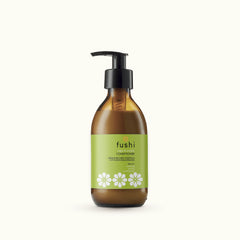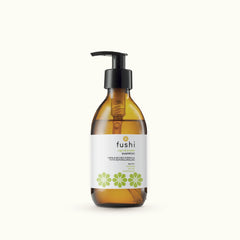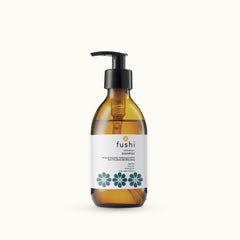Finding a shampoo not tested on animals in the UK is not as straightforward as you would think. A lot of people would be shocked to know that most likely the majority of, or at least some of their most beloved cosmetic products, have been tested on animals.
Animal testing has been banned in the UK since 1998. But the sale of cosmetics where ingredients have been tested on animals, has been banned across the European Union since March 2013 a a step further to ending cruelty against animals.
Cruelty free labelled products mean that no animals have been harmed or killed at any stage of the manufacturing process. The Leaping Bunny Logo is the only internationally recognised symbol to look out for on the packaging of products, to guarantee that no animals were harmed or killed in the process of producing them. As well as on packaging, you can find this logo on advertising and websites for cosmetic and household products.
Otherwise, finding cruelty free products can be a shady area. In China, animal testing is compulsory for any cosmetic to be sold. To reap the benefits of China's huge developing markets, many companies are not cruelty free.
Some companies are complying with the testing ban in Europe, but are selling products in another market where animal testing is essential. 80% of the world still allows animals to be used in tests. Many consumers do not want to buy a product that has caused suffering to another being, but they are unaware of the involvement of these markets, and companies can be unclear in stating their policy and ethics.
Why Finding a Shampoo not tested on Animals is better than a Shampoo Tested on Animals
Not many people are aware of the conditions and pain animals are put through for the sake of cosmetic products. Would it hurt if I sprayed a concoction of chemicals in your eyes? Most likely a yes. We all know the feeling of getting a bit of shampoo in our eyes. But imagine this burning pain times 100. Imagine not being able to rinse any of it out. Would it hurt an animal in the same way that it would hurt you? In short, yes.
Animals suffer and feel pain in the same way that humans do when it is inflicted upon them. Supporters of animal testing would ask, what is one animal to protecting and supporting the health of millions of humans worldwide? It is never one animal. Millions of animals, every day, are hurt or killed in the pursuit of producing what is claimed to be the next best product to make us all beautiful.
The worst part is that this suffering caused is totally unnecessary as there are other ways to test how a product might react with or effect a person. Alternatives to animal testing such as using human cells and tissues (called in vitro methods), advanced computer-modelling techniques and studies with human volunteers. These methods mean that animal testing is completely unnecessary. By purchasing products that have been tested on animals, we are telling these companies who are participating in this cruel practice that we support their cruel business by giving them our money. The more that the term cruelty-free catches on, the more chance we have of stopping the practice of animal testing.
How to Check for Shampoo not tested on Animals in the UK
There are many animal-friendly statements in different companies ethical policies, however, this can sometimes be rendered meaningless with regards to whether a company has included tests on animals, and can sometimes mislead consumers into thinking that they are making an ethical purchase.
Contacting companies directly by email is a reliable way to check if a product or company is cruelty free. Most of the time, using social media to check if a company really is cruelty free will not give you an entirely true answer. This is because if emailing you are communicating with someone in customer service who is trained to answer your questions, whereas in social media, the position of whoever replies will be marketing focused where making the brand seem as appealing as possible could come with blurring the truth slightly, or a lot. You can contact a company directly through a contact form on their website or by email, which you can often find in the ˜Contact Us' section of a website.
Another thing to check for is the leaping bunny logo, but more specifically, if the logo is fake. These fake logos are used to mislead customers into thinking a product is cruelty free, when in truth, either their final product or any of their ingredients are tested on animals. The 3 bunny logos that are reliable and for accredited organisations are the Leaping Bunny Logo, PETA's Cruelty Free logo and the Choose Cruelty-Free logo. Whilst the Leaping Bunny logo is internationally recognised, PETA's cruelty-free logo is USA-based and the Choose Cruelty-Free logo is Australia based. The latter is better to look for if you live in Australia.
After identifying one of these logos, you can then verify the company's cruelty free guarantee by looking for the company in the organisations online databases. Some logos used will be unlawful and used by the company without being certified by the organisation. If the company comes up on the database, you can rest assured that no animal came to harm during the entire production of the company's products.
An important point to note is that if a product does not have a bunny logo on its packaging, this does not mean it is not registered on any of the databases of the three certified organisations. Less than half of the companies found on the Leaping Bunny and PETA's lists use the logo on their packaging, so checking the database is a good way to know all the companies that are definitely cruelty free.
Testing Finished Products vs Testing Ingredients
Many companies make false claims to market their products in the best light possible. When finding shampoo not tested on animals in the UK, it is important to note that a company can make the false claim that a product and/or company is cruelty free. This is why navigating the search for cruelty free products is tricky, as you need to know which companies you can truly trust.
There are three company categories when it comes to differentiating between the companies in the grey area of saying they are cruelty free, but are actually far from it. The first category is those who test their final products on animals and the second is those who buy ingredients that are tested on animals for their products. The last but definitely not least category is those who can hand on their heart say that their products are cruelty free, and these are the companies that will be listed on the directories of the certified cruelty free organisations.
Where to Find Shampoo Not Tested on Animals in the UK
Consumers can find cosmetic products not tested on animals in the UK by looking online. For example, by searching on the websites of the Leaping Bunny, PETA, and Choose Cruelty Free, they can search their directories for all of the companies that are cruelty free.
The Good Shopping Guide is also an excellent resource for making ethical resources, and makes finding a shampoo not tested on animals in the UK easier. Here, products are rated out of 100 for how ethical they are and the green, amber and red colour system separates the companies that do not test on animals in any way in the green section from the questionable companies in amber and the companies that definitely test on animals in red. This is a simple way to research the companies that will have a shampoo not tested on animals, or other haircare and beauty products.
Other organisations whose websites can confirm a company's ethics are Cruelty Free International and the Soil Association. Their logo on packaging confirms that a product has been made without animal testing and that the ingredients have been grown without pesticides and other chemicals considered bad for us, as well as being ethically sourced.
Another way to look for cruelty free shampoo, conditioner, and any other product, is to simply ask in the shop. Usually, cruelty free products are sold in health food shops, and the shop assistants are often knowledgeable about these products.
So, in summary, to find a company that you can trust, looking in the directories of the organisations named here is a great place to start, and checking a products packaging for any of these organisations is always a good indicator, but make sure that the logo is not a fake and that it has not been used without the certifying organisations permission!
Here is the list of some of the websites you can check:
https://www.crueltyfreekitty.com
http://www.friendlyandfree.com/
http://www.thegoodshoppingguide.com/
https://www.crueltyfreeinternational.org/
https://healthycrueltyfreeliving.wordpress.com/
Enjoy using your newfound cruelty-free products with the knowledge that the money you spent on them is not endorsing any cruel activity. Finding a shampoo not tested on animals in the UK is easier when you know where to look!
Written by Jess Burman
Wellbeing writer
BA (Honours)






